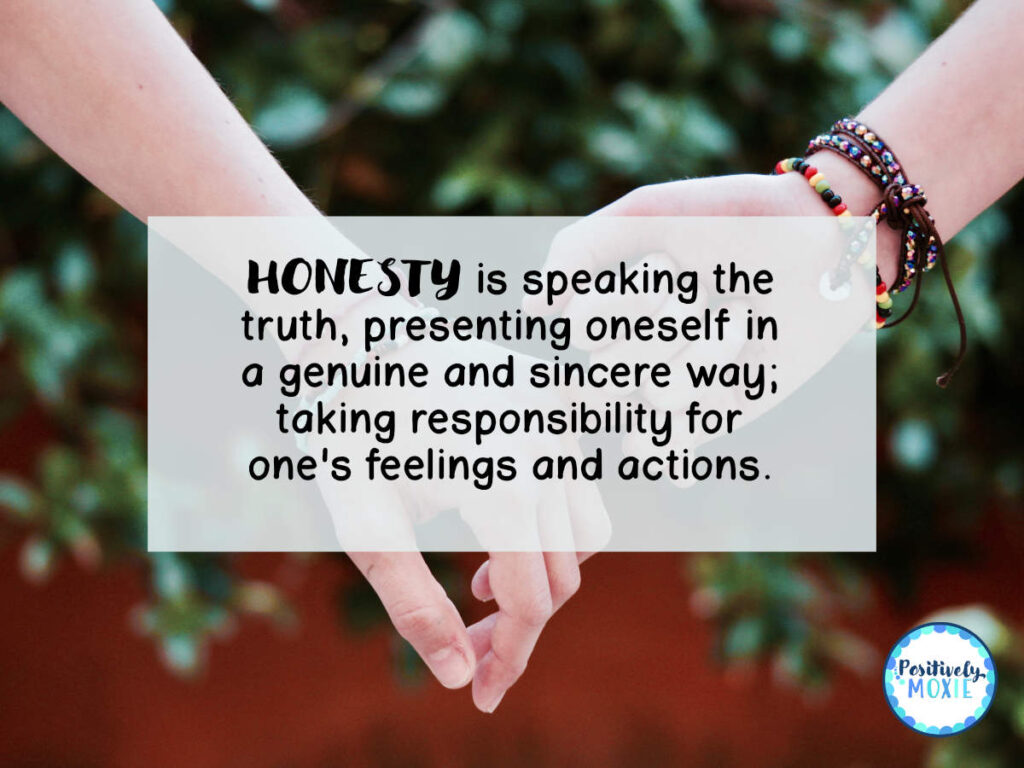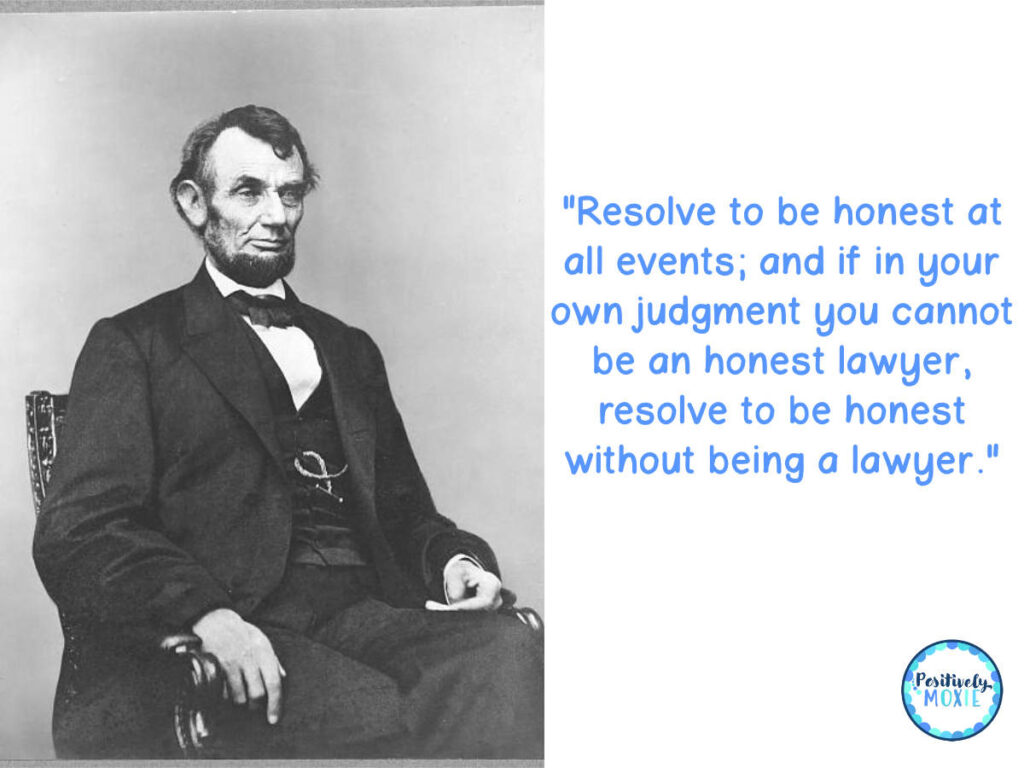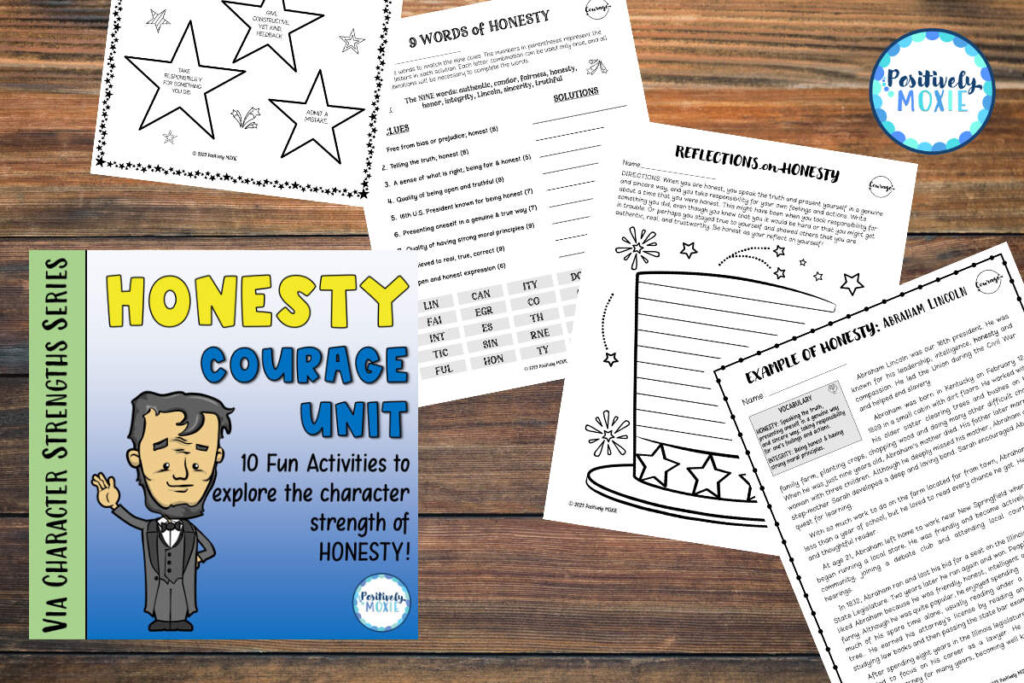Help your students learn to communicate and build relationships through honesty.

We teach students how to read, calculate math problems, and write essays; we must also teach honesty to students. Teaching honesty is fundamental in helping students develop into responsible and trustworthy adults. Learning how to be honest – speaking the truth and presenting yourself in a genuine and sincere way – helps communicate ideas respectfully, builds strong relationships, and maintains healthy emotional boundaries.
What is Honesty?
According to VIA Character Strengths, honesty is a strength within the virtue category of courage, one of six virtues that subcategorize the 24 strengths. The other strengths in courage are bravery, honesty, perseverance, and zest. Honesty is speaking the truth, presenting oneself in a genuine and sincere way; and taking responsibility for one’s feelings and actions.
1. Notice Honesty
What we notice grows. We often notice dishonesty and draw our attention to it. However, we need to also draw our attention to honesty. If honesty is important to us, then we must notice and reward it. When you see or hear a student being honest, label it. “I hear you are being honest about what happened outside.” Notice and praise. If appropriate, a hug, fist bump, or pat on the shoulder can reinforce your praise. When you notice and praise honesty, it will build your students’ self-confidence and reinforce positive behavior.

2. Model Honesty
If you want your students to be honest, you have to model honesty. Matching our actions to our words is powerful! When students see us acting or speaking with dishonesty, it undermines our message. The same goes for keeping promises. As adults, we should only make promises that we know we can keep. This means that we need to take a step back, think before we speak, and only make promises that we know we can keep.
3. Read stories about Honesty
Stories – fiction and non-fiction – are great tools for having discussions about honesty. Research shows that the most effective stories illustrate honesty in situations when it might have been easier for a character to lie. Discuss characters in books or movies who face dilemmas and who choose to be honest. You can even tell stories about times when it was challenging for you to be honest.
Biographies can be especially helpful in teaching about honesty. Our 16th U.S. president, Abraham Lincoln, was well-known for his honesty and integrity. Lincoln earned his reputation as “Honest Abe” when he worked as a lawyer. People often asked him to be a judge or mediator because they trusted him and respected him. People could count on Abraham Lincoln to mean what he said and to say what he meant. He modeled honesty in his words and actions.

4. Discuss Honesty
Discussing honesty with students will develop a trusting and positive classroom culture. The best time to discuss the importance of honesty and truthfulness is when you and your students are calm and relaxed – not right after an emotionally-charged incident. The important elements of these conversations include explaining what honesty is and why it is important. Use life and school experiences, or even your own examples to discuss how honesty was (or was not) practiced in those situations, and how things might have been done differently.
5. Teach a Lesson on Honesty
It will really drive home the point to students that honesty matters when you teach a lesson on honesty. We thoughtfully created this lesson on honesty to give students the opportunity to read and reflect on Abraham Lincoln’s journey with honesty, and reflect and write about their own journey with honesty. In this lesson, students get opportunities to engage with honesty through learning the definition of honesty, synonyms of honesty, word puzzles and ideas to become more honest and trustworthy.


